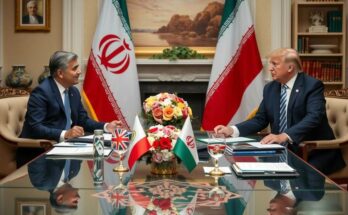Iran’s foreign ministry spokesman, Esmaeil Baghaei, has denied a report by The New York Times claiming a meeting between UN envoy and Elon Musk. He expressed surprise at the media coverage of the alleged meeting during an interview with IRNA.
Iran’s foreign ministry spokesperson, Esmaeil Baghaei, has formally and unequivocally rejected claims made by The New York Times regarding a meeting between Tehran’s envoy to the United Nations and prominent American entrepreneur Elon Musk. During an interview with the state-run news agency IRNA, Baghaei expressed astonishment at the media coverage surrounding this alleged encounter, stating, “categorically denying such a meeting.” This firm denial from Iran comes amidst tensions between the United States and Iran, particularly in discussions that touch upon technology and social media platforms, where Elon Musk has a significant influence. Such allegations can easily exacerbate strained relations, making clarity and communication essential between these entities. Baghaei’s strong words suggest that the Iranian government intends to maintain its narrative about interactions with American figures, especially those involved in technology and media. The reaction underscores Iran’s sensitivity regarding foreign perceptions and internal representations of its diplomatic activities.
The context of the article centers around international relations, particularly between Iran and the United States, where misinformation or misunderstandings can spark significant political tensions. Elon Musk, as a notable figure in technology and social media, represents an area of interest for Iran, especially considering issues surrounding digital communication and freedom of speech. The nature of diplomatic meetings, especially with symbolic figures such as Musk, can influence public perception and governmental policy in the region.
In conclusion, the Iranian foreign ministry’s categorical denial of meeting claims emphasizes the nation’s focus on managing its public image and diplomatic narratives. Such denials are critical in the context of maintaining sovereignty and clarifying miscommunications that could potentially exacerbate existing geopolitical tensions. Furthermore, this incident highlights the ongoing complexities of Iranian-American relations in the digital age.
Original Source: www.barrons.com




